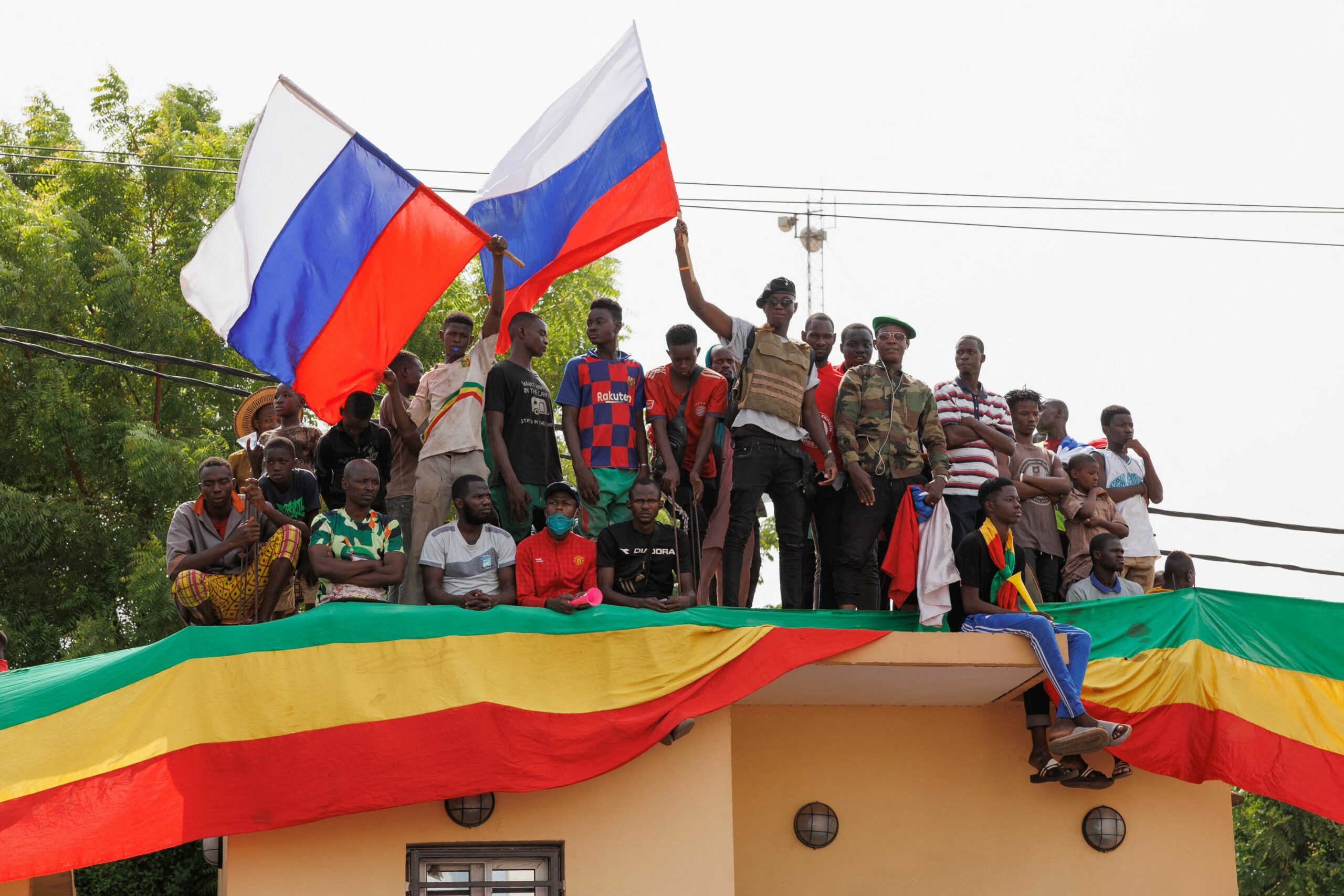Following the collapse of the Bashar al-Assad regime in Syria, commentators have anticipated the redeployment of Russia’s naval forces in the broader region. The focus has been on Libya and Sudan, where Russian fighters have recently been active. However, some analysts also view Algeria as a plausible, though less likely, option.
The attention to Russia-Algeria ties is warranted. Russian ships occasionally dock in Algerian harbors, and during the Cold War, Moscow briefly considered pursuing basing rights in Mers el-Kébir. More broadly, the ties between the two countries are long-standing. During the Cold War, Soviet Socialism and Algerian Third Worldism were seen by some as aligned, both positioned against Europe and the United States. In today’s world, Russia-Algeria relations appear warm again. During the 2019 Algerian crisis, Russia expressed support for the besieged Algerian government. In 2022, Algeria did not condemn Russia’s invasion of Ukraine, adopting a largely abstentionist stance at the United Nations General Assembly. In 2023, Moscow backed Algeria’s BRICS membership bid, which failed, though Algeria did join the BRICS-led New Development Bank. In June of that year, Russian President Vladimir Putin described the relationship as «strategic,» signing a wide-ranging declaration to «deepen» the partnership.
Politicians in Europe and the United States have criticized Algeria’s continued cooperation with Russia, particularly in the context of Russia’s full-scale invasion of Ukraine. However, the perception of a continuous strengthening of Russo-Algerian ties is misleading. In 2007, Mark N. Katz concluded that «while the two are not enemies, they are not friends either.» Years later, in 2024, Adlene Mohammedi characterized Algeria’s approach to Russia as «flexible,» rather than that of an ally or partner. What is the current state of the Russia-Algeria partnership? What sustains their engagement despite the limitations in their relationship?
Defence Ties and Their Limits
Since the 1992−2002 civil war and the large-scale 2019 protests that rocked the country, Algeria has adopted a cautious foreign policy, limiting its international engagements to managing security risks. This approach has made Russia an important partner, as defense is the central pillar of their relationship.
Since 1991, Russia has supplied over 70% of Algeria’s weapons, particularly for its land and air forces. The Soviet Union and Russia have been common destinations for Algerian military and intelligence officers’ training. This includes Gen. Mohamed «Toufik» Mediene, who holds the distinction of being the world’s longest-serving intelligence chief, in office from 1990 to 2015. Russia’s support for the Algerian government in 2019 was particularly welcomed by the military. Reinforcing these links, the June 2023 strategic partnership declaration includes twelve items focused on defense and security cooperation.
Based on these defense ties, many describe the Russia-Algeria relationship as an alliance. However, this characterization requires nuance. Russia has no defense co-development programs with Algeria, and almost no technology transfers have occurred. Russia reportedly prohibits defense offsets—permissions to reverse-engineer and locally produce spare parts—for its exports to Algeria. In this sense, Algeria is more of a customer, purchasing Russian products off the shelf rather than through value chain integration.
While many Algerian officers continue to study in Russia, others train in France and the United States, making the current26 current generation of Algeria’s military leadership less Russophile than their predecessors. Crucially, Algeria has sought to partner with the United States in the fight against terrorism. Algiers joined the NATO Mediterranean Dialogue in 2000 and was described as a «long-standing partner» to the organization as recently as 2024. Moreover, even when relations with the West—particularly France—were strained, economic ties persisted. Italy and France are Algeria’s largest trade partners, with total trade in 2023 amounting to approximately $ 17 billion and $ 12 billion, respectively. The largest investor is the United States, with over $ 900 million in foreign direct investment stock in the country. Given these nuances, Algeria has been described as a «complex ally» of the West.
Algeria, Surrounded
Focusing solely on defense ties risks overlooking the regional dimension of the Algeria-Russia relationship. This aspect highlights Algeria’s relative weaknesses and Russia’s predatory regional role.
To the west, Spain’s and the United States’ recognition of Moroccan sovereignty over Western Sahara has unsettled Algerian diplomacy, which prefers maintaining the status quo in the region. The longstanding territorial disputes between Algeria and Morocco make the future of Western Sahara a critical issue for Algiers.
Despite awareness of the stakes for Algeria, the Kremlin actively engages Rabat in commercial ties, which Morocco pursues to secure Russia’s neutrality between the two countries. In Western Sahara, Russia maintains a neutral stance, keeping channels open with Algiers, Rabat, and the Polisario Front, the group controlling the de facto independent part of Western Sahara. While Russia’s position aligns with Algeria’s preference for the status quo, Moscow’s approach is passive, whereas Algiers might prefer more active support.
To the south, the Mali junta, led by Col. Assimi Goïta, has sidelined Algeria in the fight against armed groups in Mali’s northern regions. Numerous terrorist organizations operate along the 1,400-kilometer Algeria-Mali border, with several groups, such as AQIM, active in Mali from Algerian territory. Regarding northern Mali’s secessionism, Algeria favors a political solution, while the junta labels all armed groups and their sympathizers as «terrorists.»
To the east, Libya’s persistent instability provides opportunities for extremist groups to threaten Algeria. Moreover, the Benghazi-based government of Gen. Khalifa Haftar is perceived as uncooperative and even threatening to Algiers. Only the end of Tunisia’s democratic transition, which Algeria’s autocracy viewed as a threat, and the relative stability of the friendly Tripoli-based Libyan government offer some respite.
Algiers sees Russia as a key enabler of the Mali junta, with Algerian President Abdelmadjid Tebboune openly, though diplomatically, criticizing Russia’s military presence in Mali. In December 2022, Tebboune stated, «The money that this group [Wagner] costs would be more appropriate and useful if it was allocated for development in the Sahel region.» Algerian diplomacy has maintained this critical stance toward Russian (and Turkish) deployments in the Sahel and Libya.
The Malian Shadow War
Russia’s growing influence in the Sahara-Sahel region partly stems from Algeria’s relative weaknesses, nowhere more evident than in the Algeria-Mali shadow war.
Mali increasingly views Algeria as an overbearing neighbor. Since the 1960s, Algiers has regarded its southern borders as a source of risk. Tuareg secessionism has been a persistent concern, particularly as Mali struggles to consolidate control over its northern territories. The 1992−2002 Algerian civil war heightened these worries, as Algeria-based terrorist groups expanded operations in the Sahel. This has been described as Algeria’s «containment» policy. Consequently, the Malian junta’s emphasis on «sovereignty» targets not only France but also Algeria.
Algeria’s policy is fraying due to the Malian junta’s militarized approach to the northern rebellion. In 2024, the junta abrogated the 2015 Algiers Accords, which had provided Algeria leverage in Mali through Algeria-based Tuareg groups involved in the Malian political process. For Bamako, the Accords constrained the country’s counterterrorism efforts. In this context, the presence of Russian armed personnel in Mali further emboldens the junta to diverge from Algeria’s influence.
Compounding these challenges is Algeria’s eroding intelligence capabilities in the region. The rise of the Mali junta and changes within the Tuareg rebel movement have led to the loss of valuable human sources. Moreover, Algeria’s intelligence services have been in disarray since 2019, with the external intelligence agency experiencing eight leadership changes since that year. Little is known about the current chief of the external service, Gen. Fethi Rochi Moussasi, though one source suggests Moussassi may be focusing on Mali and Niger.
Algeria’s diminished influence in northern Mali has strained relations with Bamako. The 2023 capture of Kidal, a northern Tuareg stronghold, was a joint operation by the Malian armed forces and the Wagner Group, signaling the impossibility of implementing the Algiers Accords at that point. For Russian forces, the battle marked a high point in their African campaigns, boosting their visibility and reputation as an effective fighting force. In contrast, the July 2024 battle of Tinzaouaten shocked observers as the largest Russian defeat in Africa to date. The junta accused Algeria of facilitating rebel operations against the Russo-Malian force. Today, Mali routinely claims Algiers supports terrorism in Mali.
Russia as a Partner, Despite It All?
The most recent crisis is ongoing. On the night of March 31, 2025, a Turkish-made Malian drone was shot down near the border town of Tinzaouaten. The Algerian government claimed the drone was armed and had entered its airspace, while Mali accused Algiers of targeting the drone to protect terrorists. The incident led to the mutual closure of airspaces and the withdrawal of ambassadors from Algiers and Bamako, as well as from Mali’s Alliance of Sahel States (AES) allies, Burkina Faso and Niger.
In response to these setbacks, Algiers has been recalibrating its foreign policy, reshuffling many of its ambassadors, including those in Ankara, Damascus, and Moscow—sensitive postings for Algeria. Algeria’s emerging approach to the Russo-Malian security nexus combines engagement and deterrence. Reports indicate that a new Algerian military base has been established in Béchar, in western Algeria, seemingly aimed at both Mali and Morocco.
Engagement has involved direct dialogue with Moscow. Until early 2025, Russia had no ambassador in Algeria in late 2024, relying on the informal services of Gen. Sergey Surovikin, who was in quasi-exile in the country at the time. Days after hosting AES foreign representatives in April 2025, Moscow welcomed an Algerian delegation for political consultations «on African topics.» Press releases from these meetings mention the AES as a discussion topic, likely including the drone incident.
During their April 2025 meeting, Russian and Algerian diplomats reportedly referenced the June 2023 declaration as a foundation for future cooperation. The declaration includes an element increasingly urgent for Algeria: intelligence sharing.
According to research by Antonio Giustozzi, Joana de Deus Pereira, and David Lewis, the Wagner Group collaborates with Mali’s intelligence agencies, including through intelligence sharing. Historically weak, Malian security services have relied on foreign patronage, likely now provided by Moscow. The transition to the Afrika Corps likely did not disrupt this cooperation.
This level of access may make Moscow an attractive partner for Algeria. The June 2023 Russia-Algeria declaration calls for enhanced intelligence sharing to combat terrorism and organized crime, including the «coordination of measures in response to threats originating from foreign terrorists.» That year, Algeria joined the FSB’s database of extremists, facilitating the exchange of sensitive data.
Shadow Wars, Real Consequences
On April 18, 2025, the International Crisis Group described the Mali-Algeria crisis as «dangerous,» raising the possibility of open conflict. As Assala Khettache argued in 2024, Algeria’s options in Mali are limited. Open intervention is feasible—Algeria boasts Africa’s third-largest armed forces—but it would severely jeopardize ties with Russia. Will the Kremlin pursue mediation to enhance its regional profile further, or will it sideline the issue to continue benefiting from Algerian weakness?
In either case, Russia’s goals in the region remain consistent: to exploit the relative weaknesses of established actors and project the image of a major power with global reach. Moscow has capitalized on rising anti-French sentiment in West Africa and Algeria’s cautious foreign policy, positioning itself as an essential partner to many regional governments. This is particularly true for those seeking to engage the AES juntas, which, due to their strategic location, are unavoidable in energy and security matters.










